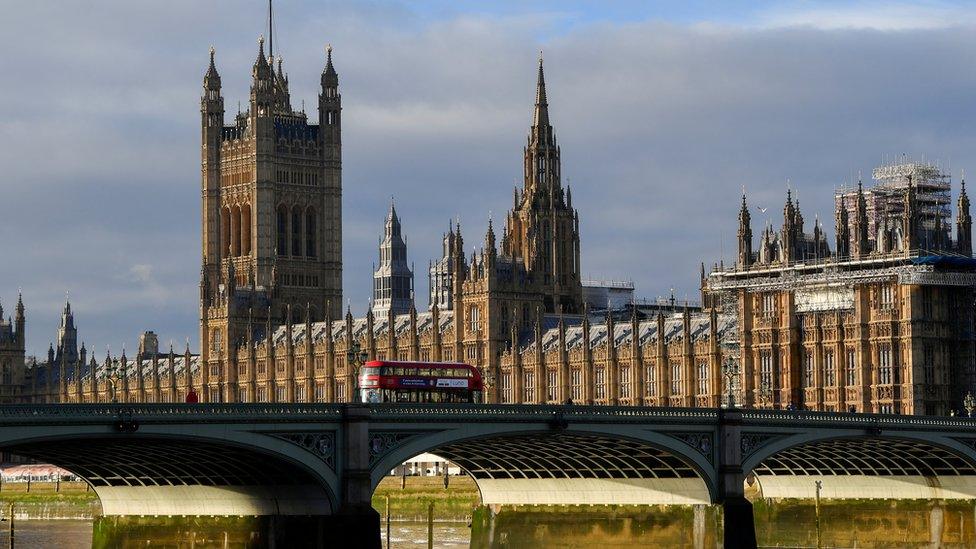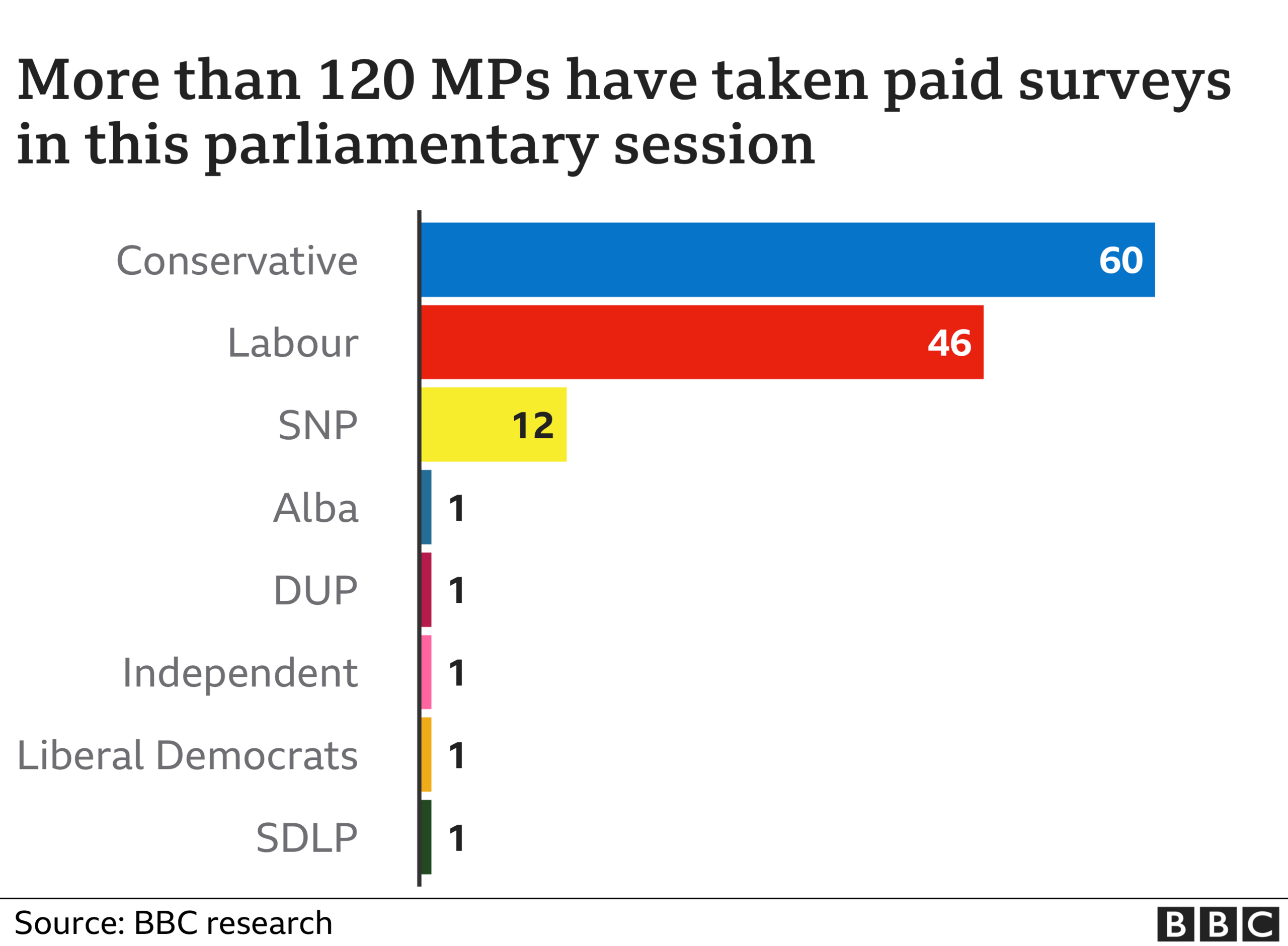MPs earn up to £350 an hour for taking surveys
- Published

MPs from across the House earned over £116,000 taking surveys since the election
MPs are earning up to £350 an hour to take surveys for polling companies, according to BBC research.
Firms such as YouGov and Ipsos Mori regularly question MPs on behalf of businesses and charities to find out the opinions of policy makers.
Since the 2019 election, 123 MPs have spent 695 hours carrying out 1,040 surveys - earning more than £116,000.
They are not breaking conduct rules if the earnings are declared, but it comes amid renewed scrutiny of outside work.
MPs are expected to be banned next year from working as consultants or advisers to companies, after a former Tory MP was found to have broken lobbying rules by the standards watchdog.
Backbench MPs are paid an annual salary of £81,932.
They have long earned additional money by filling out surveys.
Companies, charities and campaign groups are willing to pay polling firms to find out what MPs think about their products and services, or their views on the major issues of the day.
Recent surveys included asking MPs their thoughts on the Northern Ireland Protocol, on rises in tax to pay for social care and the legalisation of drugs.
Many of the surveys - and the companies who pay for them - are not published.
According to BBC analysis of the register of members' interests, the majority of the participants from this Parliament - 69 in total - kept the cash they earned, while 24 gave it all to charity.
Others donated the money to their local parties, used it for office or campaign costs, or did a mixture.
Who took the surveys?
Of the MPs who took part in surveys, 60 were Conservatives, 46 were Labour and 12 were from the SNP. One MP each from the Liberal Democrats, the DUP, the SDLP and Alba also took part, along with one independent member.
The research showed Patrick Grady, SNP MP for Glasgow North, earned the most since the last election, being paid £3,560 for over 20 hours work - the equivalent of £176 per hour.
His SNP colleague, the MP for Angus, Dave Doogan, spent the longest doing the surveys - more than 35 hours, averaging £78 per hour.
But the highest hourly rate paid to an MP was £354, with Labour's shadow justice minister Alex Cunningham earning £1,950 for just over 5.5 hours work - donating the money to his local party.
Polling company YouGov collected the most surveys from MPs - a total of 470 in this Parliament - followed by Savanta Comres at 380, Ipsos Mori at 146 and Yonder 28.
Polling companies do not target MPs alone, and often carry out surveys of business leaders, doctors and other public figures.
But politicians have to declare any surveys they take, as well as how long it took, how much they are paid for it and where the money goes.

The highest paid MP for surveys in the Conservative Party was Tewkesbury MP Laurence Robertson - earning £3,495 for 17.5 hours work, a rate of £200 per hour.
For Labour, it was shadow solicitor general Ellie Reeves, who earned £3,145 for over 18 hours work - a rate of £172 per hour - with £275 donated to charity.
Some MPs earned large sums for a few minutes of work, including Conservative MP for Reigate Crispin Blunt, who was paid £50 for a five minute survey, £75 for a 10 minute survey and £125 for a 15 minute survey, among his £2,505 earnings from Ipsos Mori.
His Tory colleague, Andrew Selous, also earned £200 for a 20 minute survey from YouGov, but donated the money to charity.
He told the BBC: "This was to help a struggling mental health charity that does amazing work and has no state funding.
"I did it in my own time, outside of business hours, and now some people will be able to have a Christmas dinner as a result."
The largest payment for a single survey went to Labour's Judith Cummins, who earned £300 for a 45 minute survey by Savanta Comres.

A spokesman for Ipsos Mori, which has carried out the surveys since the 1960s, said the firm provided "incentives" to MPs "to ensure we get the correct range and make up of individuals taking part, providing us with the basis for our robust and thorough research and insights".
And he said the research enabled other organisations "to understand MPs views on a wide range of policy matters as well as gaining insight into areas such as reputation, campaign effectiveness and areas of public concern being raised with MPs".
A spokesman for another polling firm, Yonder, said that MPs "generally regard it as part of their duties as elected representatives to offer opinions when asked - whether participating in a private conversation, in media appearances or in research".
But they said participation was "entirely voluntary of course".
The BBC has contacted all the MPs mentioned in this article for a response to the research.